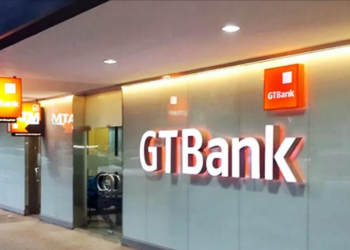Story Highlights
- The Court of Appeal in Abuja has overturned a N20 million damages ruling against Guaranty Trust Bank (GTB) by the Federal Capital Territory High Court.
- The appeal centered on GTB’s requirement for Know-Your-Customer (KYC) procedures before allowing withdrawals from Bendu Peter Services Nigeria Limited’s dormant corporate account.
- The Court supported GTB’s stance, citing compliance with Anti-Money Laundering regulations and the need for proper identification documentation as reasons for its decision.
The Court of Appeal sitting in Abuja has set aside N20 million damages awarded against Guaranty Trust Bank Plc by a High Court of the Federal Capital Territory, over its insistence on the completion of Know-Your-Customer procedures on a restricted corporate GTBank account of Bendu Peter Services Nigeria Limited.
The judgement was delivered by Justice Abba Bello Mohammed on Thursday in GTB’s appeal against Bendu Peter Services Nigeria Limited and Prince Charles Chudi Chukwuani.
The appeal was initiated after the trial Court faulted GTB for breaching its banker-customer relationship with the respondents when it insisted the company must complete its KYC/Customer Due Diligence (CDD) procedures before it can accede to the requests for withdrawal on the company’s account.
Facts of the case
As seen on court processes associated with the case by Nairametrics on Thursday, Bendu Peter Services Nigeria Limited opened a corporate account with the GTB in 1995 and Ms. Bendu Rosetta Browne was stated to be the sole signatory.
GTB’s lawyers, Adeniyi Adegbonmire (SAN) and Elizabeth Tijani submitted that the corporate account was last operational in 2011 and had been dormant for about four years when Prince Charles Chudi Chukwuani visited the bank on 16th December 2014 to withdraw money from the company’s account.
The bank informed Prince Charles Chudi Chukwuani that as he was not the signatory to the account and as the account had been dormant for about four years, the bank requires a letter for reactivation of the account from the company, a board resolution appointing him as the new signatory replacing Ms, Bendu Rosetta Browne.
The bank also demanded the means of identification of the two directors who signed the resolution and the letter for reactivation, amongst other documents.
GTB’s lawyers stated that Chukwuani provided his means of identification to the bank but did not provide the means of identification of Ms. Bendu Rosetta Browne who signed the letter for the reactivation of the corporate account in a dual capacity as director and as secretary of the company’s board.
“The means of identification of the directors who purported to act on behalf of the 1st Respondent were part of the KYC documentation requirements under the Anti-Money Laundering Act to confirm that the directors’ signatures were duly authorised and they were indeed privy to the said documents.
“It is also in evidence that the Appellant checked the address and called the number provided for Ms. Bendu Rosetta Browne during the account opening to no avail,” GTB stated, adding that consequently, the bank was unable to allow access to the account as the outstanding document was not provided by the defendants.
While the GTB alleged the respondents never produced the valid regulatory identification of the director, Ms, Rosetta Browne, the company filed legal action before the High Court claiming the bank unlawfully placed restrictions on its account.
The company alleged that GTB “maliciously refused to allow the respondents to make any withdrawals and that the appellant had utilised its money illegally or unconstitutionally. “
The company alleged that Chukwuani suffered a heart attack on account of his inability to withdraw N500.000 from the account and that he was illegally detained in GTB’s Asokoro Branch, Abuja on 17 December 2014.
GTB stated that at the time, the total amount standing to the credit of the company in its corporate account was N1,620,000.
But on 23rd March 2020, the trial Court ruled that GTB breached the company’s right by not allowing its director to withdraw from its account while awarding N20 million in damages in favour of the customer.
GTB then appealed, insisting that its insistence on the completion of the KYC/CDD procedures as required by the Anti-Money Laundering/Combating Financing of Terrorism Regulations (“AML/CFT”) does not amount to a breach of contract on its part.
What the Appeal Court said
Mohammed, while reading the unanimous judgement of a three-man panel of the appeal Court on Thursday, said the provisions of the money laundering act have imposed on GTB the obligation to apply the KYC provisions on customers’ accounts.
He said the appellant was clearly right to insist the company must submit the means of identification of Miss Bendu, one of the signatories of the company.
He held the lower Court did not note GTB’s KYC provisions as required by relevant laws, thereby setting aside its judgment.
The Court agreed with GTB, saying “the Trial Court was wrong to hold that the appellant’s refusal to allow the 2nd Respondent access to the 1st respondent’s bank account amounted to a breach of the bank-customer contract, in view of the fact that the Appellant was required by law, to verify the identity of the directors who signed the letter of re-activatíon and resolution and was unable to do so because the Respondents did not provide valid means of identification of one of the directors, Bendu Rosetta Browne.”
The judge subsequently set aside the N20 million damages against GTB.





















